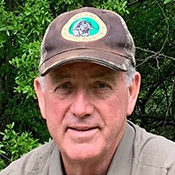By Brook Minx, Safari Club International Foundation President
As we are well into hunting seasons here in North America, I am reminded of the breadth of SCI Foundation’s efforts to promote wildlife conservation and provide educational programs that demonstrate the critical role of hunting and sustainable wildlife use in conservation worldwide.
This is especially relevant to me given my return from Namibia, where I attended the 21st African Wildlife Consultative Forum in Windhoek, Namibia. The AWCF is one of SCIF’s premier programs, bringing together government agencies, professional hunting associations, community organizations and researchers from across the continent to discuss shared issues and coordinate efforts to continue the benefits of safari hunting for conservation and local communities.
This year’s forum was cohosted by the Namibian Ministry of Environment and Tourism, the Namibia Professional Hunting Association and the Namibian Association of CBNRM Support Organizations. We were fortunate to have nearly 100 attendees from a dozen countries this year representing a variety of interests and perspectives.
Our location in Namibia was especially appropriate considering the focus of this year’s conference on the African Wildlife Economy and opportunities for Africa’s abundant natural resources (including wildlife) to benefit indigenous peoples and local communities. Namibia and their conservancy system have long been models for community-based natural resource management, with clear governance structures and legal mandates that the economic benefits of safari hunting accrue to local communities.
The AWCF agenda included several breakout sessions on these topics, including the status of hunting in Africa, the role of communities, communicating effectively and, most importantly, achieving a $30 billion wildlife economy. Delegates tackled these challenging issues through open dialogue and the meeting produced actionable items to move them forward.
Another benefit of the AWCF is the opportunity to highlight SCIF’s ongoing conservation projects in Africa. During the session on big cat research, we discussed the leopard project in Botswana, where SCIF has partnered with researchers from the Caesar Kleberg Wildlife Research Institute to survey this iconic species at an unprecedented scale.
These camera-based surveys have estimated leopard density over nearly 7,500 square kilometers in nine areas of the country to date (with another 10-12 areas to be surveyed in 2024). Long-term, the results will allow the Botswana Department of Wildlife and National Parks to ensure their leopard harvest is appropriate and sustainable.
Other programs include the PATROL antipoaching newsletter, our partnership with the Mozambique Wildlife Alliance to benefit elephant habitat in Mozambique, and the start of an ambitious lion collaring project in Tanzania. Along with the AWCF itself, these programs represent SCIF’s long-term commitment to on-the-ground conservation research and management in Africa.
This was my second time to attend the AWCF, and I once again came away impressed and humbled by the dedication and enthusiasm of the various delegations for the wildlife and people of Africa.
AWCF is founded on the belief that, by working together, we can ensure that iconic African landscapes remain secure and healthy and that African peoples continue to benefit from their natural resources.
The AWCF and all SCIF programs benefit from the support of the Hunter Legacy Fund, without which AWCF would not be possible. We look forward to an even better AWCF in 2024!



